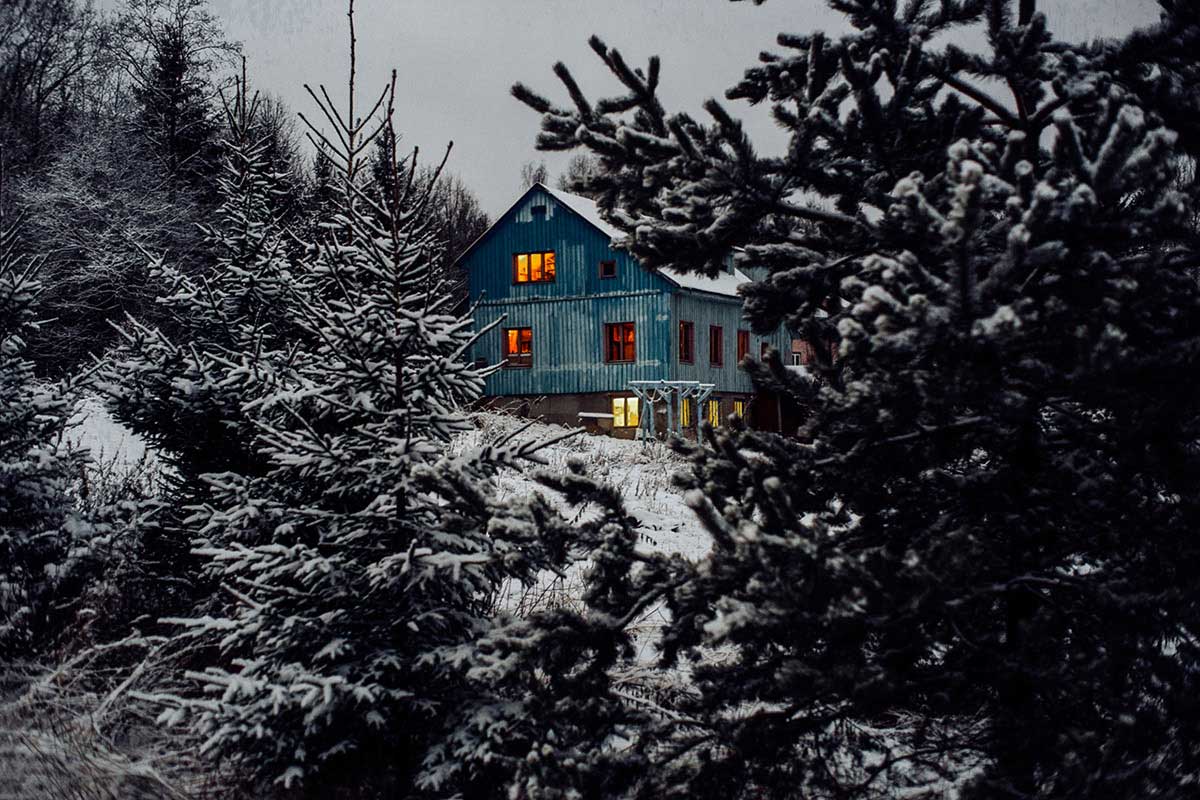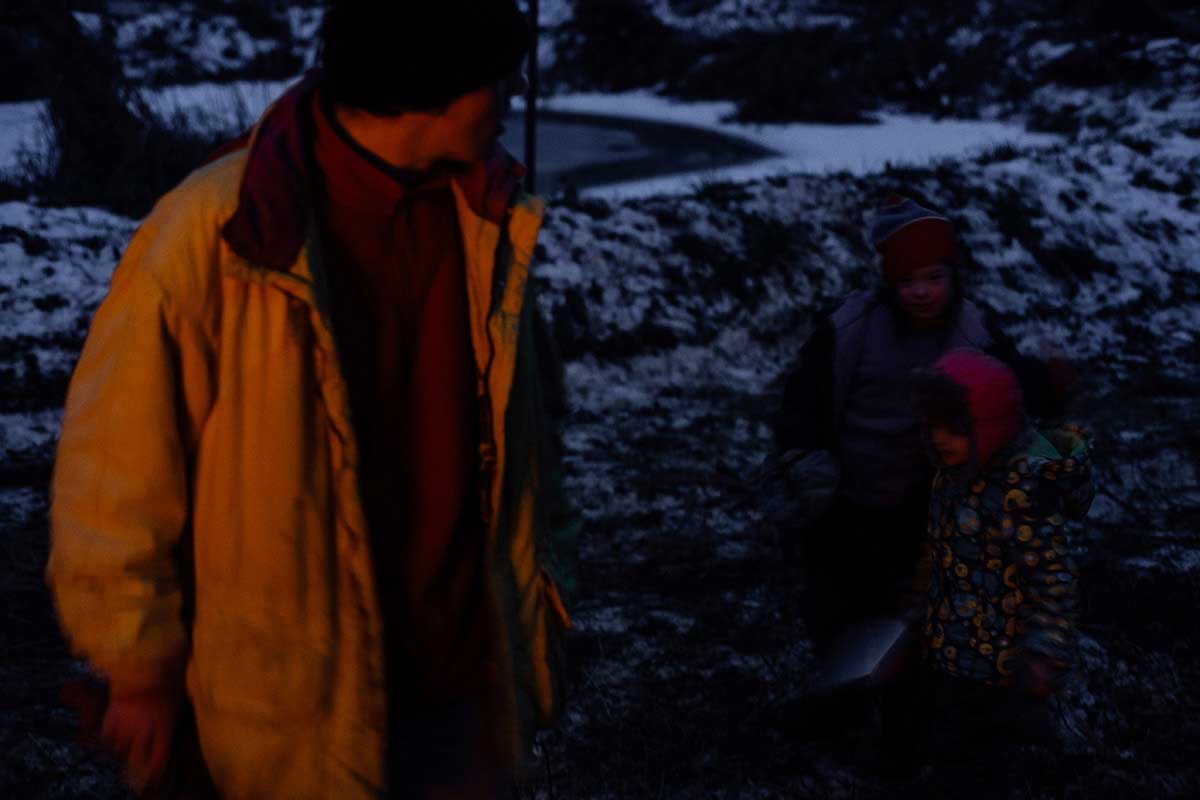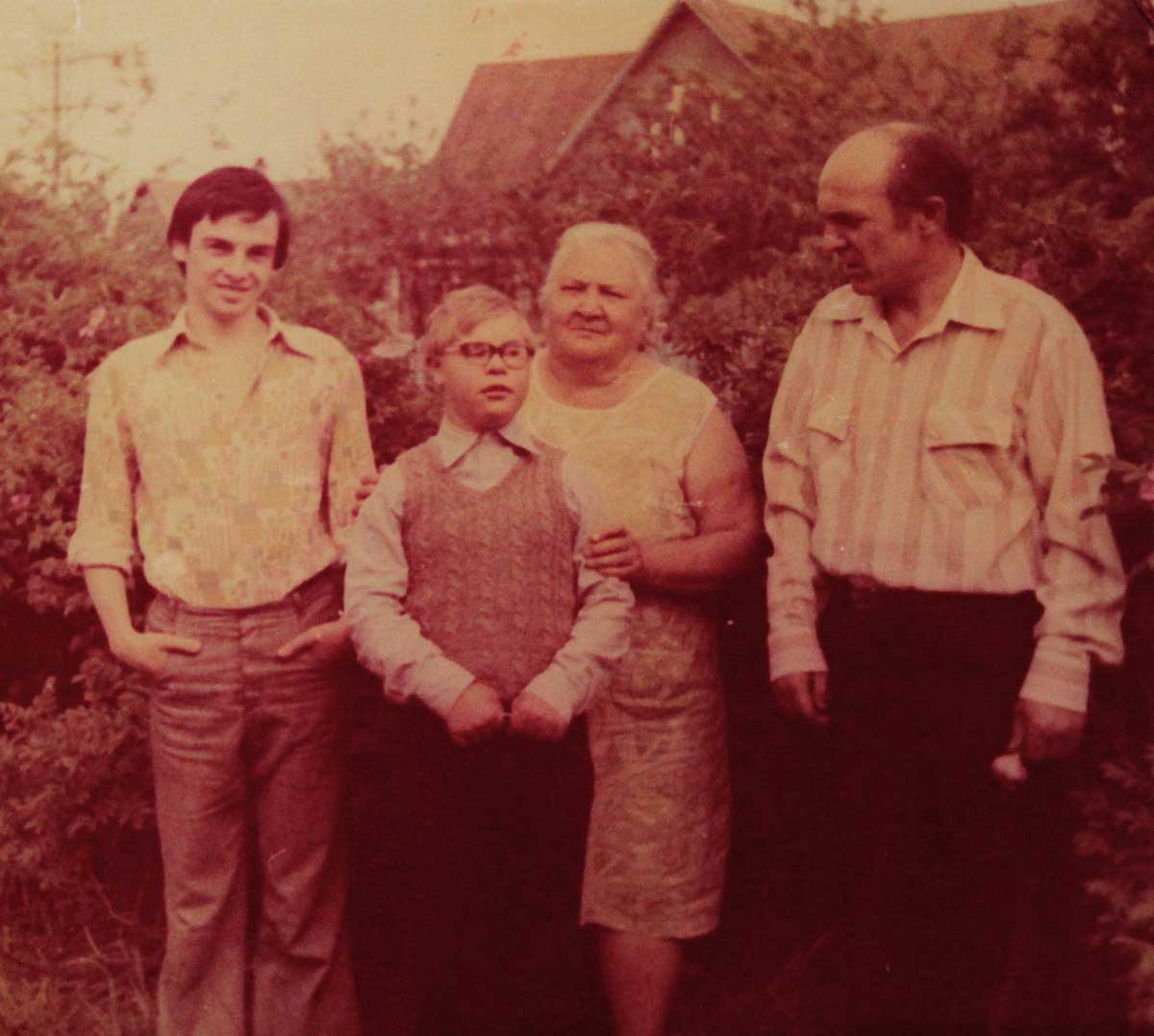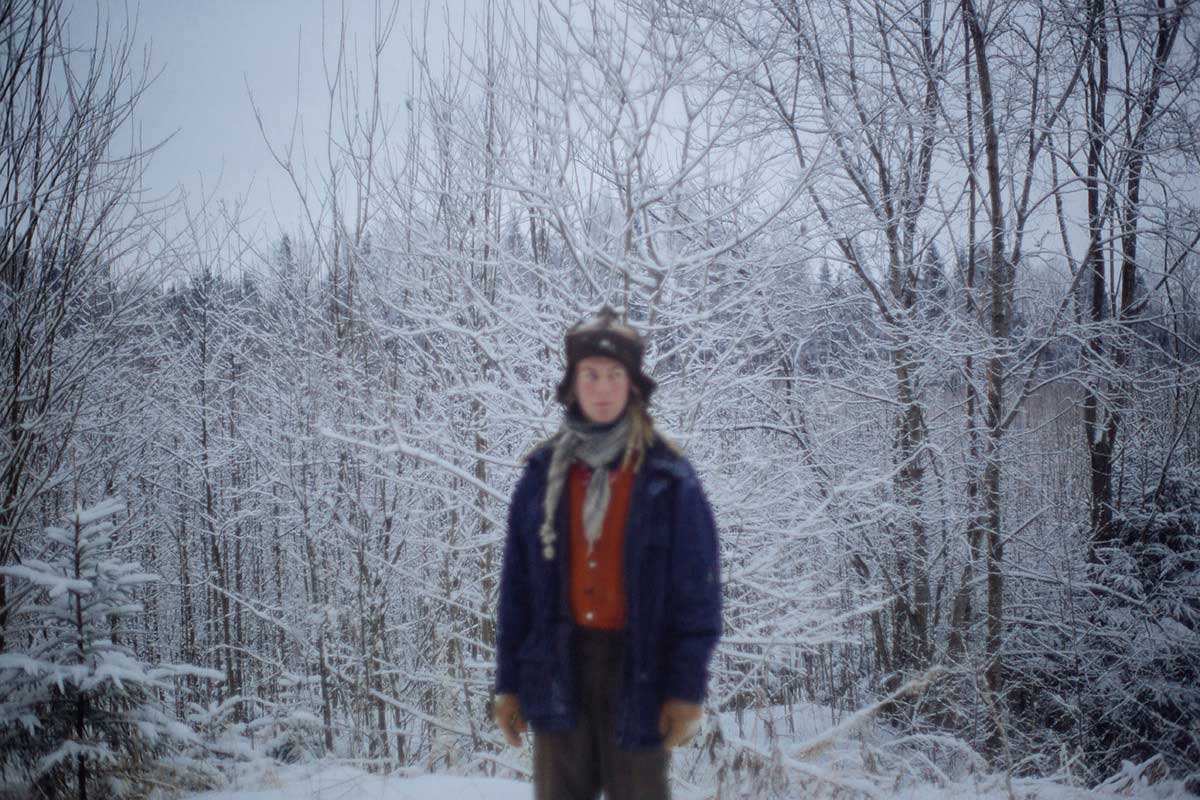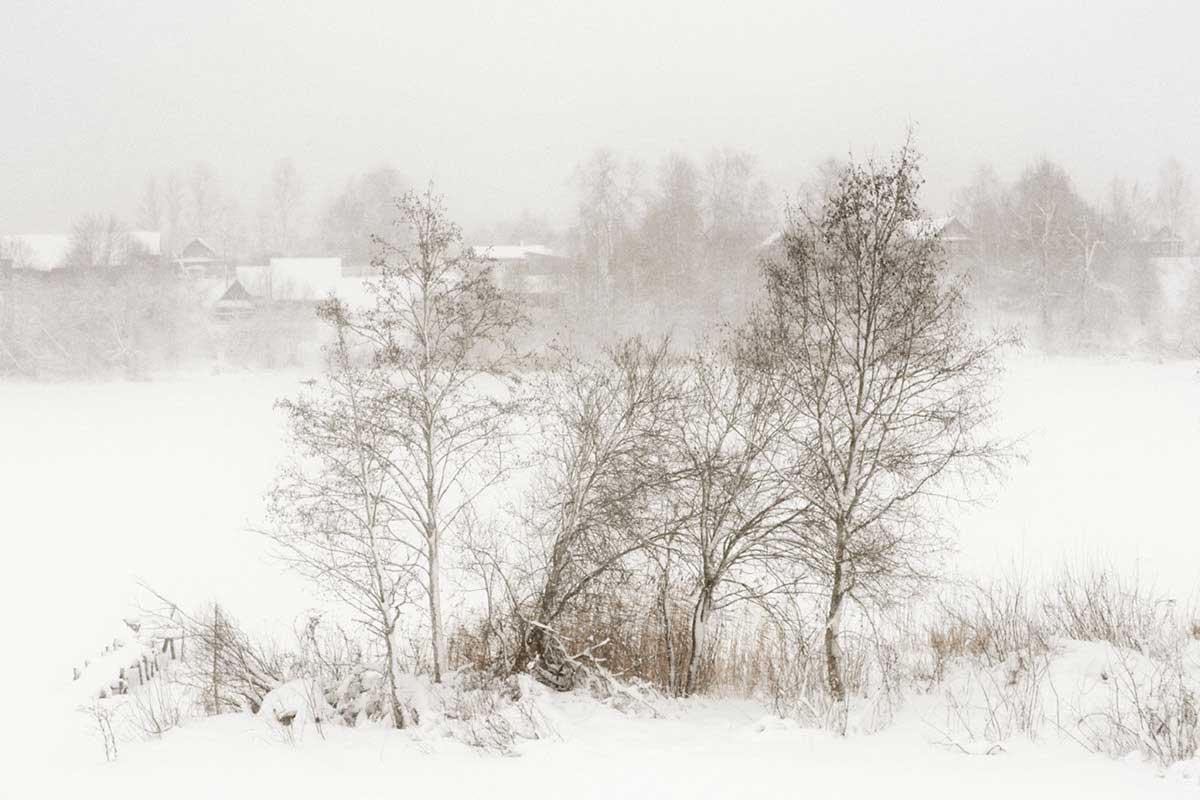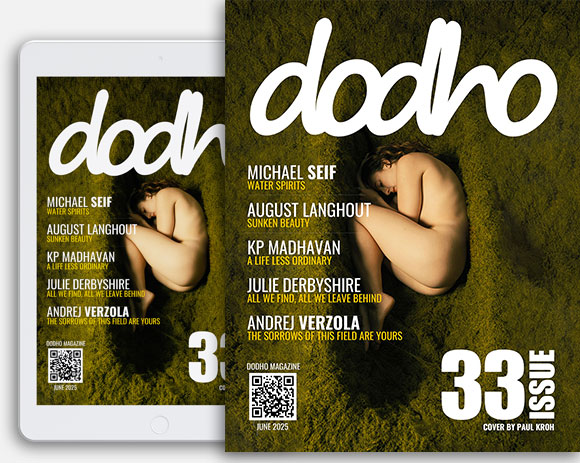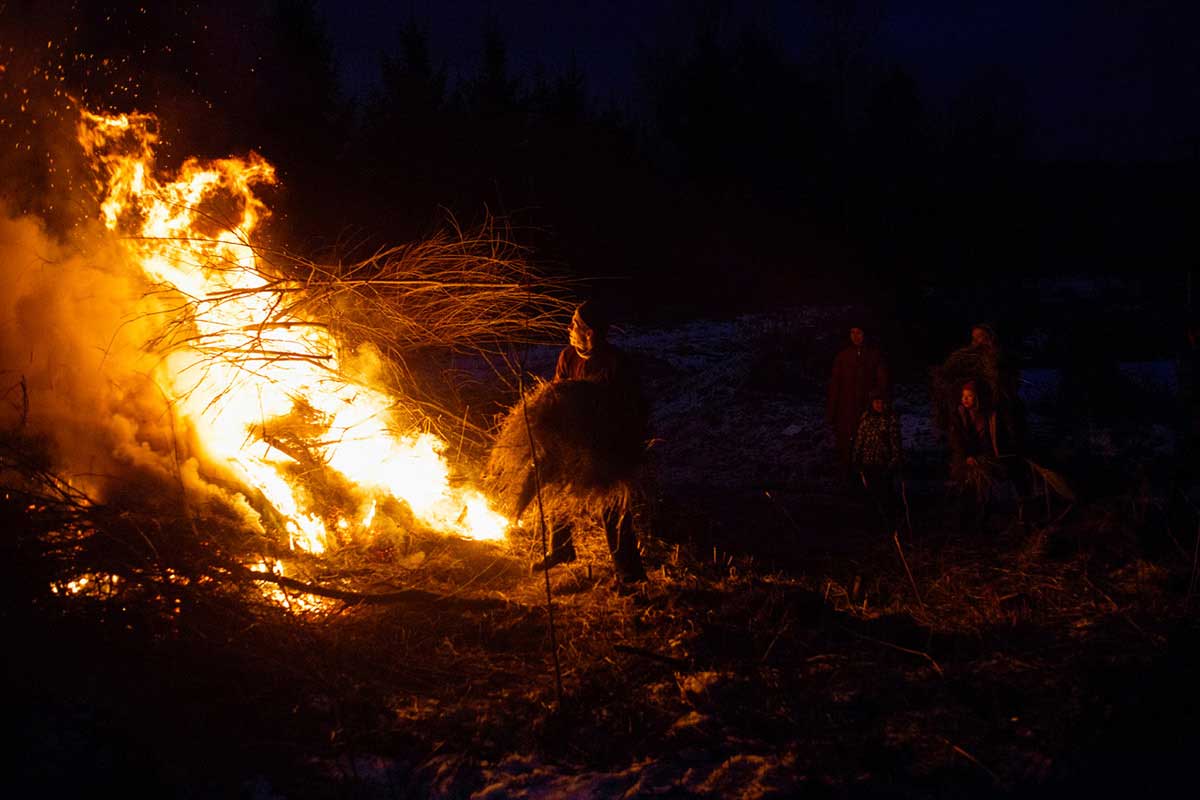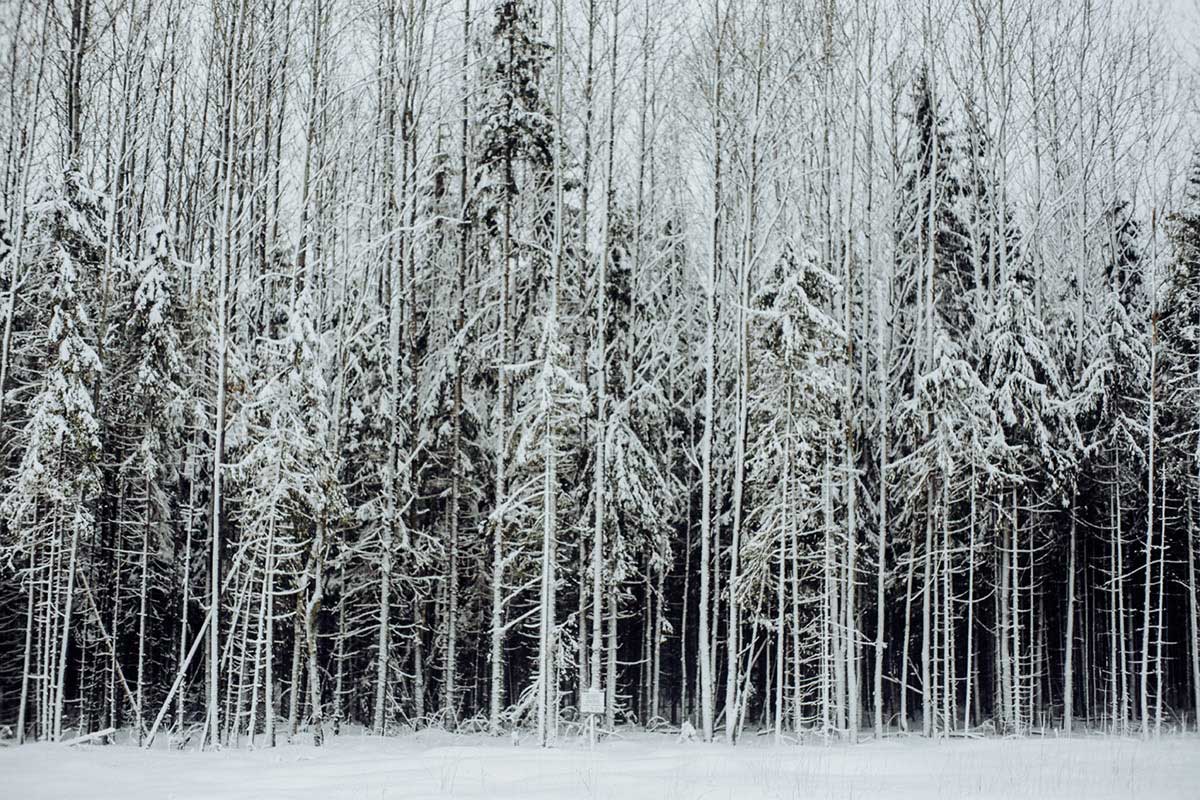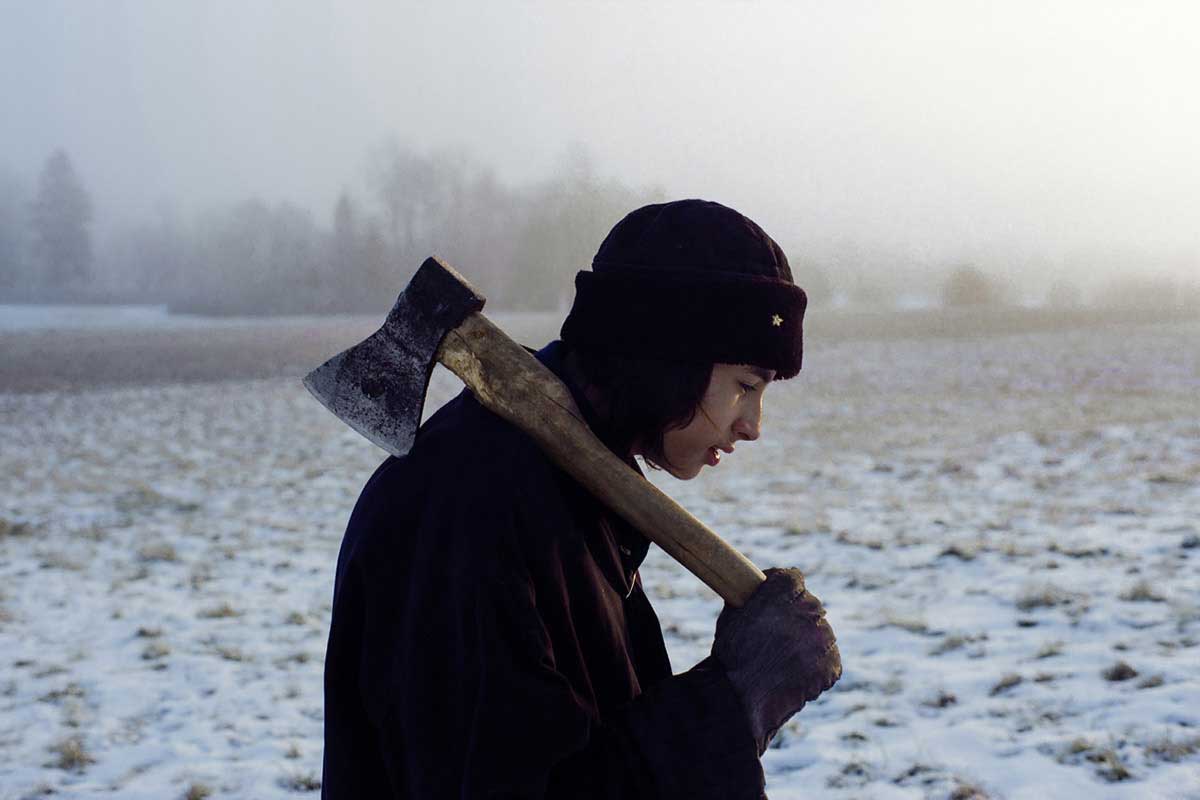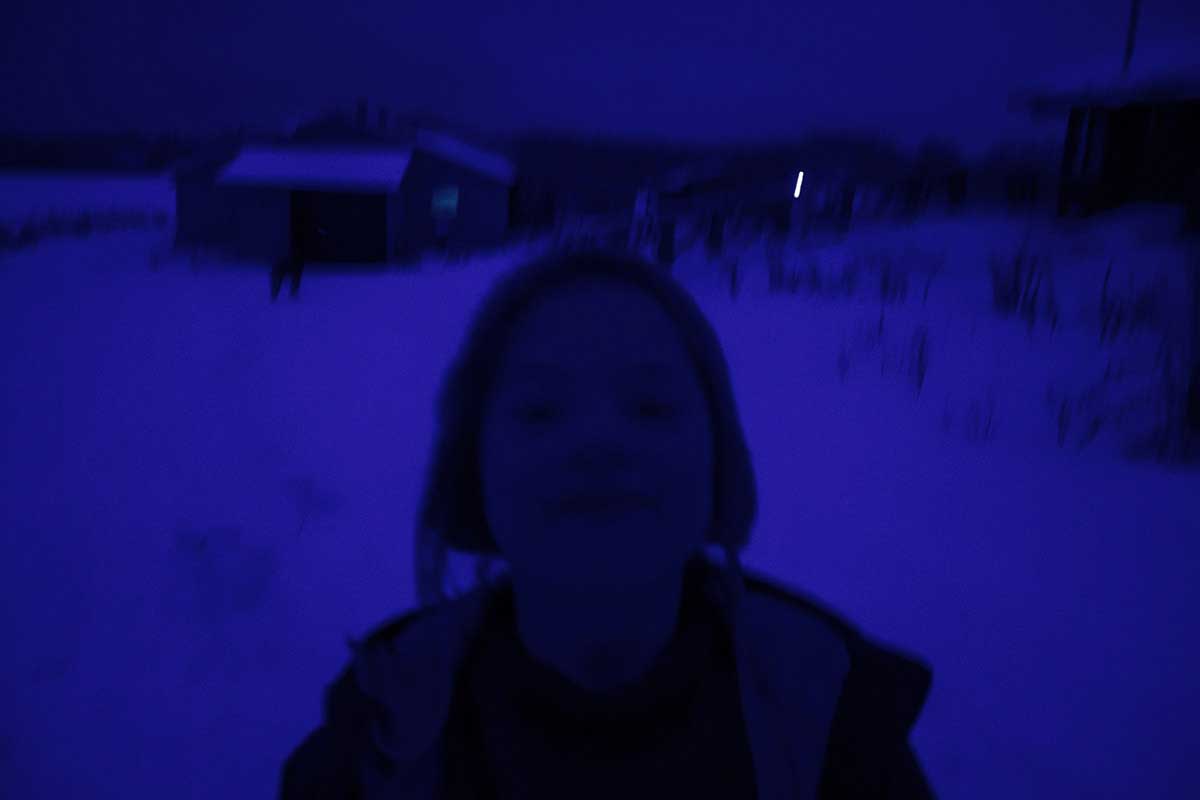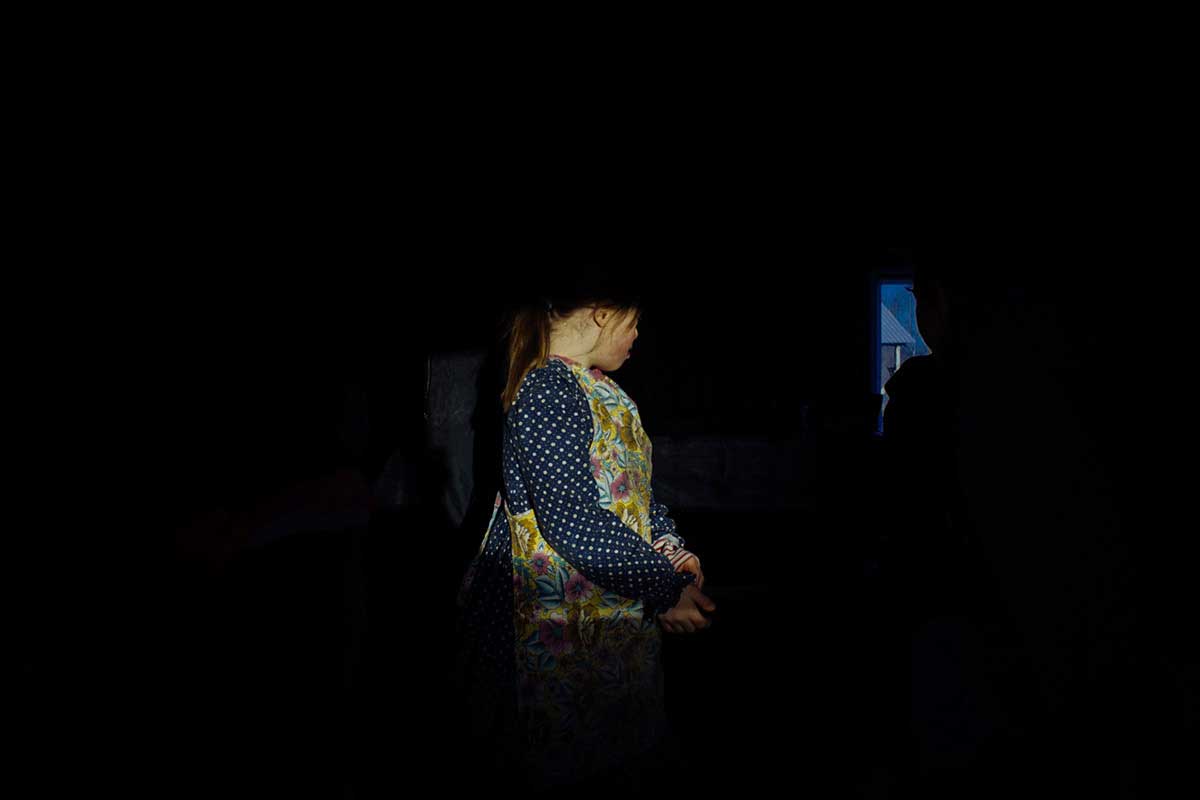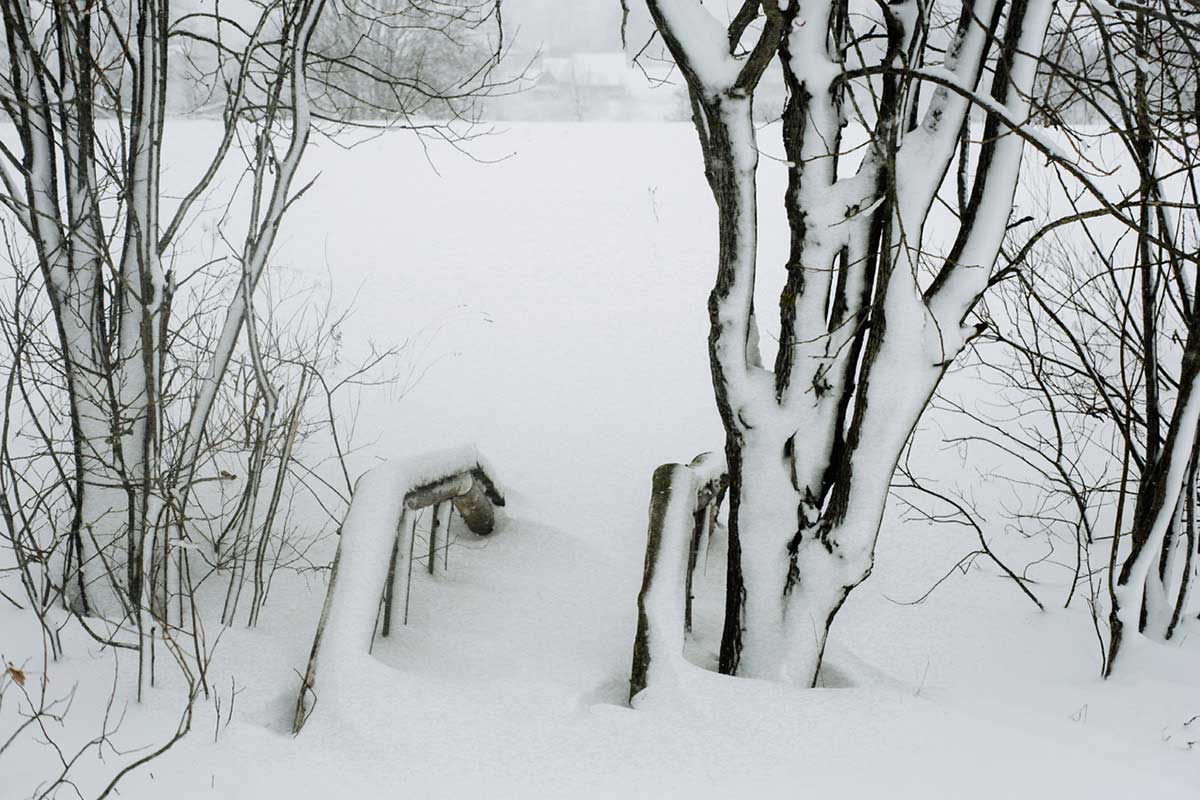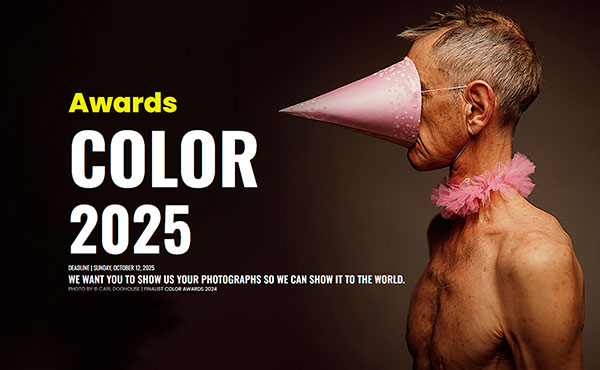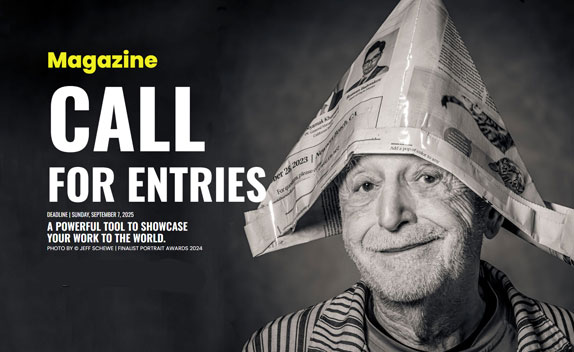For about 3 months I tried to take pictures of the landscape in the village. Landscape with a pathway (in russian – mostki).
Catch the necessary light that would show them from the side with which they are unknown. During this time, I do a several dozen attempts, leaving the house after dinner, I headed to the river with a camera in my hands.
Variable weather; winter, turning into autumn, then into spring, and back, wind, fog, gloomy and sunny days; choose (find, collect) from chaos – to harmony.
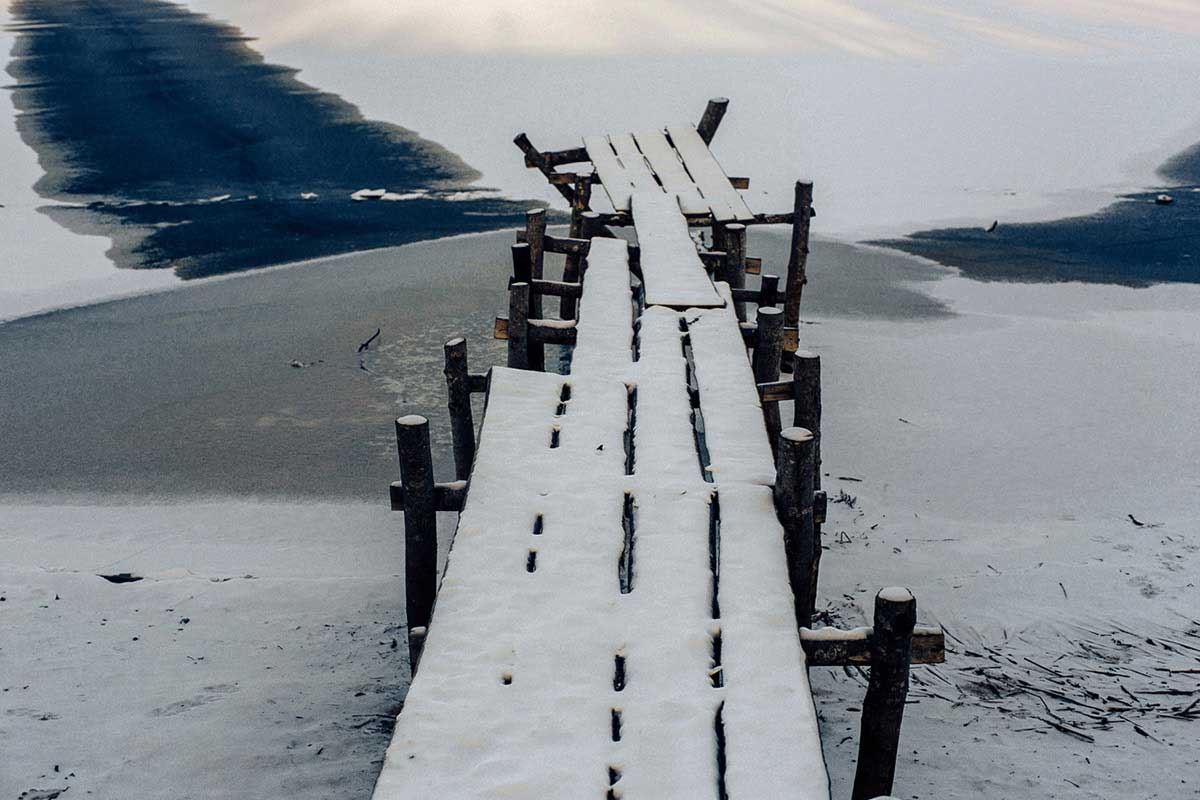
The village “Svetlana” is located in the Leningrad region, on the Syas River, near the town of Syasstroy. The village is home for about 40 people – many of them need a special approach. “Svetlana” is a Camphill-type settlement, in which people with physical and mental disabilities live together, in a community. In Russia there are two camphills – Svetlana and Chistye Kliuchi. There are about a hundred such villages in the world.
“This is not only the establishment of social assistance, not just farming. It is a living, breathing social organism. Some of us are called “invalids”, and some are considered normal. Community consists of representatives of different peoples and cultures. Among us are pensioners and very young children. Life in our village consists of all colors of the rainbow, from the brightest to the most gloomy”.
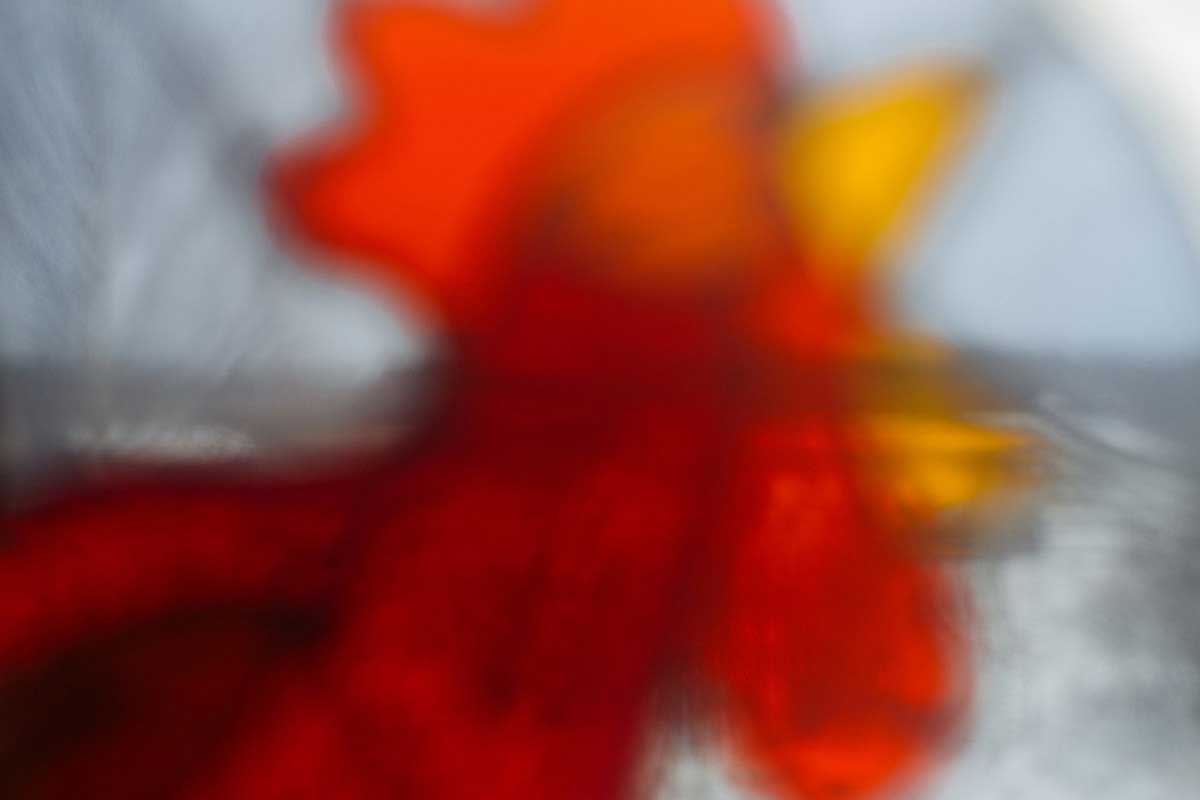
Approximately every tenth person in the world is disabled. Including in Russia and all its cities. Anyone without a disability can face this problem at any moment in his life, and even if he is “lucky,”; limitations of physical abilities will simply come along with old age. Only the systematic exclusion of disabled people from society has led to the fact that disability is perceived as something unusual, anomalous, something to which it is unclear how to relate.
Most people feel uncomfortable, if not an easy panic if for the first time in their life they communicate with a person in a wheelchair or with a blind person, do not know how to react if it turns out that a person has a mental illness. Because of ignorance and prejudice, many begin to behave inadequately. The reason is that all these people have been taught since childhood to treat disabled people as cardinally “other.”
There are many ways to make a person “different”, different from yourself. With regard to disability, the easiest way is to represent people as “victims”. Another way is the idea about disabled people as “heroes”. At the same time, heroism turns out to be everything: education, participation in sports competitions, career, family life and other things that are considered normal for “ordinary” people.
In fact, there is nothing heroic in the fact that a person makes great efforts to live as fully as possible – all people the same for this. Behind the myth of the “hero” is the notion that disability “must” be a tragedy. And if people with disabilities dare to live a normal life, then, probably, this is only an exception, the consequence of an incredible “heroism”.
However, the success of any movement against discrimination depends on the whole society changing attitudes toward a particular group of people. And the success of movements for the rights of disabled people is impossible if people do not start to think about the “uncomfortable” topic for them, over what stereotypes they have personally. Only if people give up prejudice, then they will have a chance to really see people with disabilities – not templates and stamps, but real, completely different people whose needs and aspirations are no different from their own.
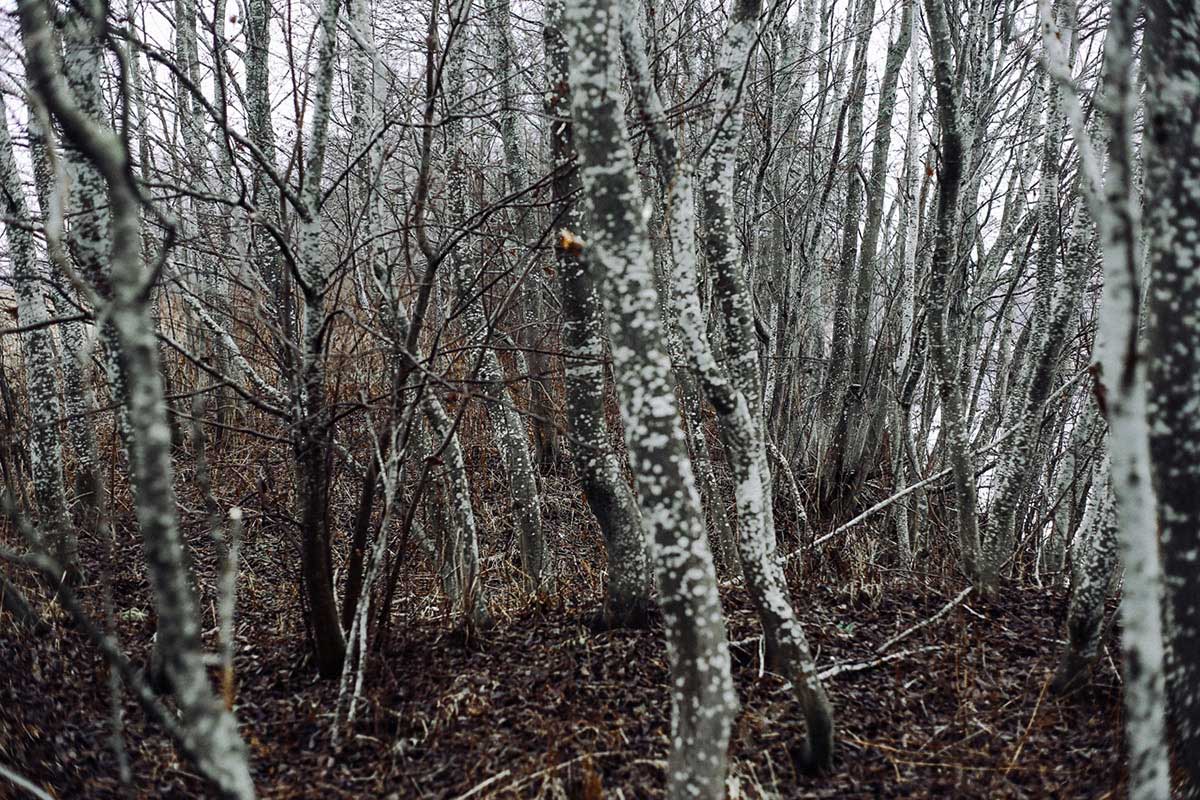
About Platon Terentev

